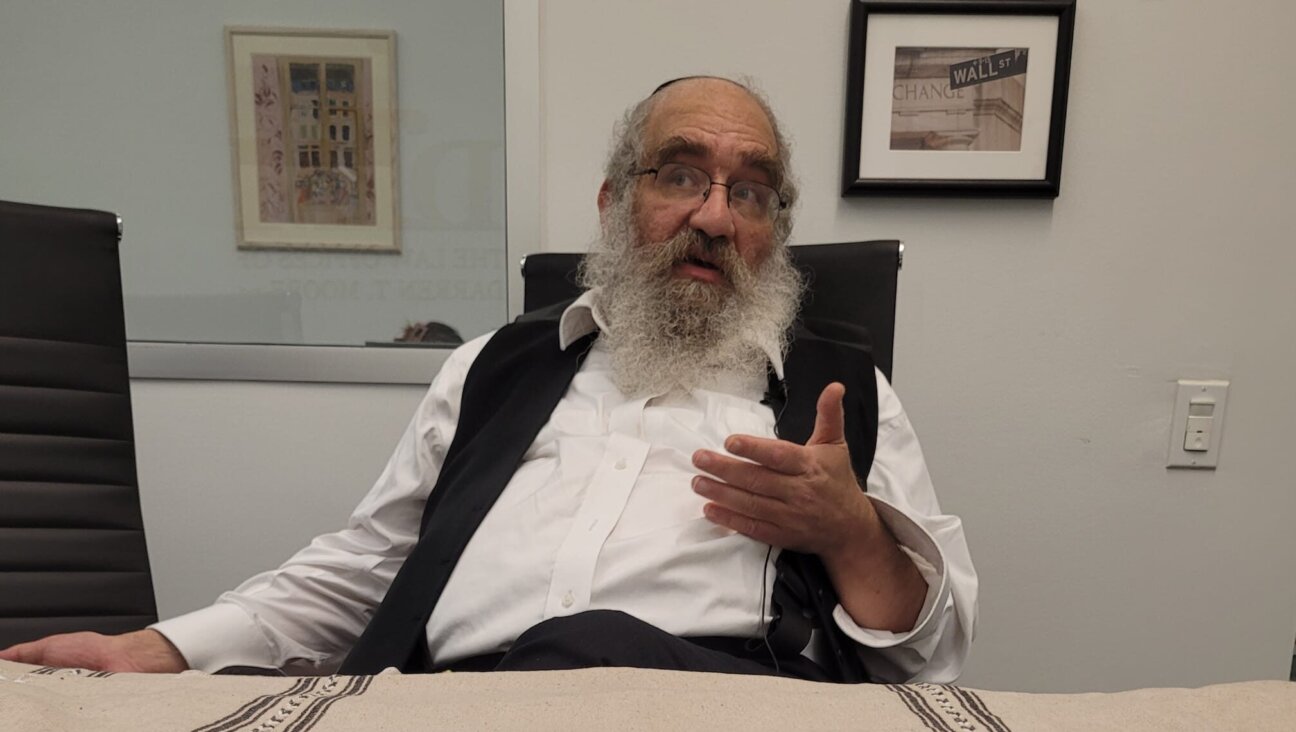Trump Avoids Backing Two-State Solution In Disjointed Statement After Netanyahu Meeting

Graphic by Angelie Zaslavsky
President Donald Trump on Wednesday urged Israeli Prime Minister Benjamin Netanyahu to curb settlement activity but avoided any explicit endorsement of a two-state solution to the Israeli-Palestinian conflict, a longstanding bedrock of U.S. Middle East policy.
Trump gave a convoluted response to a question on whether he backed a two-state solution, he suggested that he could abide by whatever the two parties decided.
“I’m looking at two-state and one-state and I like the one that both parties like. I’m very happy with the one that both parties like,” he said.
The two leaders met face-to-face for the first time since Trump’s victory in the 2016 presidential election even as Palestinians urged the White House not to abandon their goal of an independent state.
Speaking at a joint news conference, Trump vowed to work toward a peace deal between Israel and Palestinians but said it would require compromise on both sides and it would be up to the parties themselves ultimately to reach an agreement.
“I’d like to see you pull back on settlements for a little bit,” Trump told Netanyahu. The right-wing Israeli leader later insisted that Jewish settlements were “not the core of the conflict” and made no commitment to reduce settlement building.
Trump echoed Netanyahu’s calls for Palestinians to recognize Israel as a Jewish state – something they have refused to do even though they have recognized Israel for years – and to halt incitement against Israelis.
But even as Trump promised to pursue peace between the two sides – who have had no substantive peace talks since 2014 – he offered no new prescriptions for unblocking the peace process or achieving a deal that has eluded so many of his predecessors.
Setting a chummy tone for the meeting, Trump greeted Netanyahu on a red carpet rolled out to the White House driveway. The two leaders smiled, shook hands and chatted amiably before heading inside the executive mansion, accompanied by first lady Melania Trump and Netanyahu’s wife Sara.
Among the questions expected to figure prominently on the agenda was the future of the two-state solution – the idea of creating a Palestine living peacefully alongside Israel, which has been a bedrock U.S. position.
In a potential shift, a senior White House official said on Tuesday that peace did not necessarily have to entail Palestinian statehood, and Trump would not try to “dictate” a solution.
“I can live with either one. I thought for a while it looked like the two-state, looked like it may be the easier of the two, but honestly if Bibi and if the Palestinians if Israel and the Palestinians are happy, I’m happy with the one they like the best,” Trump said, referring to Netanyahu by his nickname.
A retreat from U.S. backing for a two-state solution would upend decades of U.S. policy embraced by Republican and Democratic administrations and a principle considered the core of international peace efforts.
Netanyahu committed, with conditions, to the two-state goal in a speech in 2009 and has broadly reiterated the aim since. But he has also spoken of a “state minus” option, suggesting he could offer the Palestinians deep-seated autonomy and the trappings of statehood without full sovereignty.
Palestinians reacted with alarm to the possibility that Washington might ditch its support for an independent Palestinian nation.
Palestinians reacted with alarm to the possibility that Washington might ditch its support for an independent Palestinian nation.
“If the Trump administration rejects this policy it would be destroying the chances for peace and undermining American interests, standing and credibility abroad,” Hanan Ashrawi, a senior member of the Palestine Liberation Organization, said in response to the U.S. official’s remarks.
“Accommodating the most extreme and irresponsible elements in Israel and in the White House is no way to make responsible foreign policy,” she said in a statement.—Reuters














